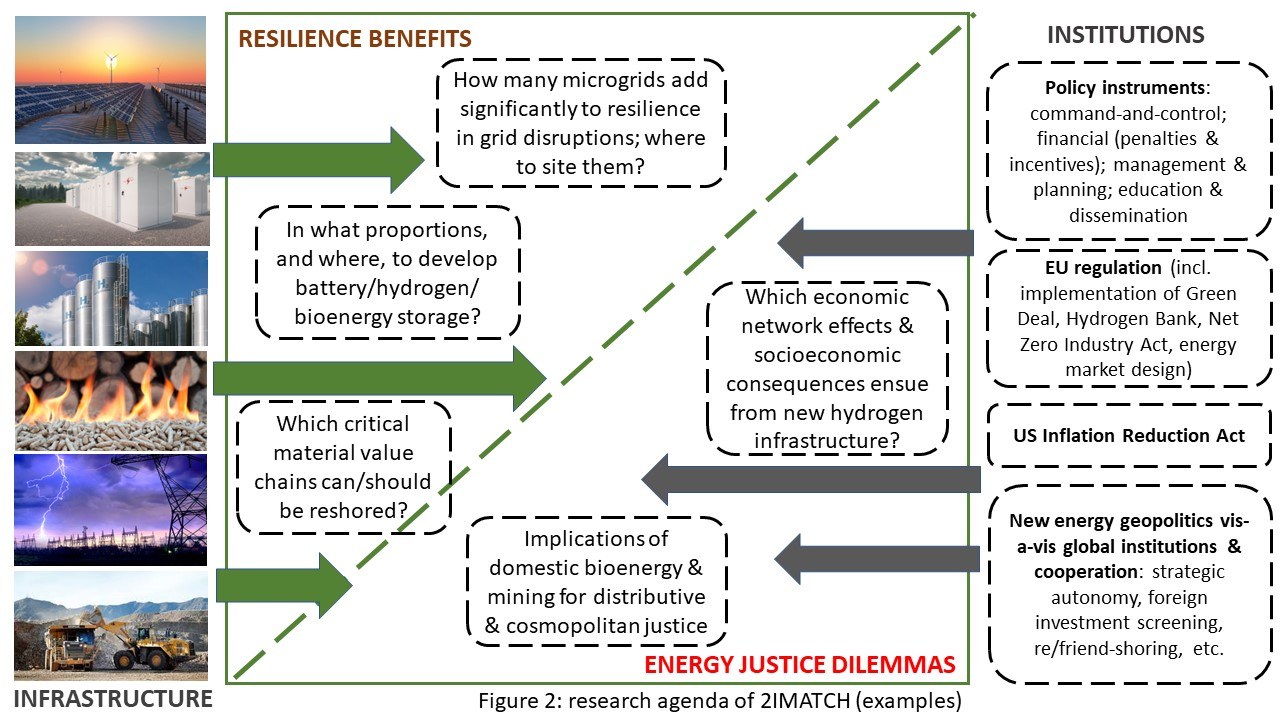The 2IMATCH consortium examines how green electrification can deliver a more resilient energy system and society in an uncertain world disrupted by several human-made disasters and seemingly persistent global confrontation. With green electrification, we refer to the ongoing transition to a climate neutral and effective system where electricity, based largely on renewable sources, becomes the main energy carrier in all consumption sectors and where electricity-based fuels such as hydrogen, ammonia and methanol become commonplace.
We focus on the involved resilience challenge, and propose that reaping the benefits whilst restraining the new vulnerabilities requires new and refurbished energy infrastructure and institutional adaptation and innovation. We take Finland as a local case of global energy transition owing to the high interaction capacity of Finnish actors.

The project will produce:
- solution proposals on the dilemmas that emerge between resilience and justice in new infrastructure development, informed by interdisciplinary research;
- analyses on how new regulations and policies in the USA and EU shape new energy geopolitics and in turn, Finnish choices;
- optimization solutions regarding combinations of large and small, centralized and decentralized infrastructures, enabled by a new, methodologically advanced, open-source modelling tools with open access data pipelines;
- new conceptual framework for the comprehensive study of resilience, informed by interdisciplinary security studies;
- comparative knowledge on the resilience/justice implications of energy infrastructure and institutional reforms, based on case studies; and
- an improved understanding of how municipal utilities and SMEs can adapt to the transition.
Funding source
The project is funded by the Strategic Research Council (SRC) established within the Research Council of Finland.
Partners
The project’s key target groups include authorities, companies and other organisations from the energy and security sectors, for example, relevant ministries and agencies, transmission and distribution system operators, SMEs, municipal utilities, industries along the value chains of green electrification technologies, and think-tanks. The project also seeks to liaise with IT and data companies.
